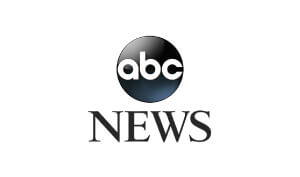This is a reproduction of the article found on the February 25th edition of the Asbury Park Press.
Bruce Springsteen’s DWI charge was dropped. Some lawyers say it should never have been brought
Andrew J. Goudsward Asbury Park Press
Published 5:00 a.m. ET Feb. 25, 2021 Updated 12:11 p.m. ET Feb. 25, 2021
Two years ago, if Bruce Springsteen had taken two shots of tequila while on an afternoon motorcycle joyride on Sandy Hook, he likely wouldn’t have broken any laws as long as his blood alcohol level stayed under the legal limit. But ahead of the summer 2019 season, park officials banned alcoholic beverages on the six-mile long peninsula, citing growing issues with excessive drinking.
It is that decision that set the stage for Springsteen’s guilty plea Wednesday to a misdemeanor charge of consuming alcohol in a closed area, a fact noted by U.S. Magistrate Judge Anthony R. Mautone, who presided over the case. Springsteen, 71, had been pulled over on Nov. 14 after a park ranger reported that he saw the Jersey rock icon down a shot of Petron tequila and then get on his Triumph motorcycle near the Sandy Hook Lighthouse. Sources familiar with his account said he had been drinking with fans.
Charges of driving under the influence and reckless driving were dropped at a virtual court hearing Wednesday after prosecutors said they couldn’t prove them. A breath test taken after his arrest had shown his blood alcohol level was 0.02%, a quarter of the legal limit of 0.08%. But the one charge prosecutors had the evidence to support was the accusation that Springsteen had consumed alcohol in a prohibited area. Springsteen admitted under questioning from his attorney Mitchell Ansell that he had “two small shots of tequila” despite knowing it was illegal to drink in the park.
He was hit with $540 in court fines and fees.
Sandy Hook was the last public beach in New Jersey to allow alcohol before the Gateway National Recreation Area, the federally owned park that includes Sandy Hook, moved to ban it. Park officials said there had been 368 alcohol-related incidents at the park between 2016 and 2018, including a man who had fallen four feet off a loading dock, a man who had passed out in the sand and waves washed over his head and a serious motor vehicle wreck that injured four people.
“Sandy Hook has become a party beach,” Chief Ranger Greg Norman said in a news release at the time. “People don’t come here for a beer, they come here for a six pack.” A spokesperson for the Gateway National Recreation Area did not respond to a request for
comment Wednesday.
Some prominent DWI defense attorneys in New Jersey said Springsteen should never have been charged with drunken driving after the November incident because his blood alcohol level did not approach the legal limit.”The most salient fact in this case is that Mr. Springsteen was 400% under the legal limit and was a completely innocent man of DWI,” Freehold-based DWI attorney Matthew Reisig said. “His DWI got dismissed because there was not a case to prosecute him for DWI.”
Reisig said Springsteen received “no preferential treatment” because of his celebrity status. “He would have gotten the same result whether his name was John Doe,” he said.
John Menzel, an Asbury Park-based DWI attorney, said the park ranger was within his rights to investigate Springsteen. But he said once the breath test results came back at 0.02%, the DWI part of the case should have been thrown out. “All you need to make an arrest is probable cause,” Menzel said. “He (the park ranger) had a reasonable basis on which to continue an investigation. In this case, when they completed the investigation, they should not have issued a DWI ticket.”
Prosecutors are allowed to bring a DWI charge without a breath test result based on observational evidence, like the odor of alcohol, slurred speech and performance on field sobriety tests during a traffic stop. A defendant can also be charged if police suspect drugs, not alcohol, are the reason for the impairment.
Richard Lomurro, a criminal defense attorney who handles DWI cases, said it’s not
uncommon for prosecutors to charge those sorts of cases.
The ranger who stopped Springsteen indicated in a probable cause affidavit that the Boss “smelt strongly of alcohol” and “had glassy eyes” at the time he was pulled over. He also showed signs of intoxication during two field sobriety tests, the ranger said. Springsteen refused a breath test during the initial stop, but the judge noted that the results of that test wouldn’t have been admissible in court anyway.
Springsteen, because he was arrested on federal property, was a rare DWI case handled in federal court. The vast majority of DWI cases in New Jersey wind up in one of New Jersey’s more than 500 municipal courts.
In municipal court, prosecutors routinely drop or downgrade charges to quickly resolve the steady flow of cases. But Lomurro said municipal prosecutors do occasionally bring DWI cases when a defendant does not a blood alcohol level above 0.08% if other evidence is
compelling.
It’s up to defense attorneys to challenge the strength of that evidence, he said. “We can counter it with many things. Like a failure to do field sobriety test, maybe you just had a knee replacement or maybe you have a stutter that causes you to slur your speech,” he said. “I’ve seen more things than you can imagine that would challenge or explain a field sobriety test.”
Lomurro said it was clear in this case that prosecutors did not have compelling evidence to show that Springsteen was illegally impaired in spite of the breath test result. He said it was rare to see a prosecutor concede, as Assistant U.S. Attorney Adam Baker did at Springsteen’s hearing, that he cannot prove a case.
Mautone, the judge presiding over the case, said he couldn’t “imagine even the contemplation of a guilty plea,” based on the facts in the record.
Attorneys agreed that the incident should not impact Springsteen’s illustrious rock and roll legacy. But municipal court attorney Peter Lederman said Springsteen was “extraordinarily lucky” that he had the means to successfully challenge the charges. Many of the roughly 25,000 people arrested each year for DWI in New Jersey, especially those who are lower-income, can’t hire their own attorney well-versed in the minutiae of DWI law.
Some of those defendants wind up with DWI convictions even if their alcohol level is under the legal limit The face penalties including a re oked dri er’s license hiked car insurance premiums and hefty motor vehicle fines.
While his arrest brought Springsteen a few weeks of unwanted headlines and got his well-received Jeep Super Bowl ad temporarily pulled online, Lederman said DWI arrests can cost some defendants their careers. “It’s a very uneven system,” he said. “Lots of people get convicted of stuff that they never should have because they don’t have representation, or they end with the wrong prosecutor or judge or they just want to get it over with.”
Andrew Goudsward: agoudsward@gannett.com; @agoudsward on Twitter.









